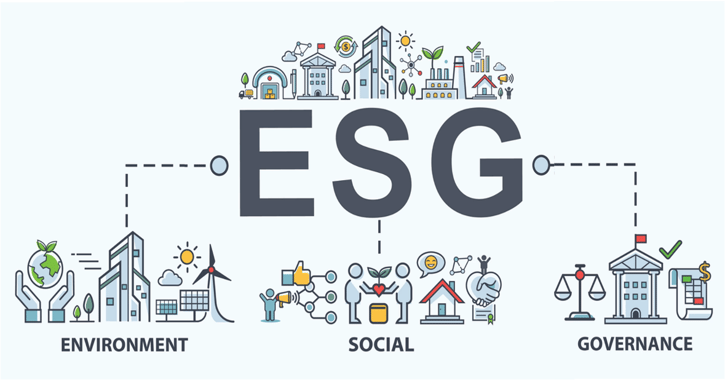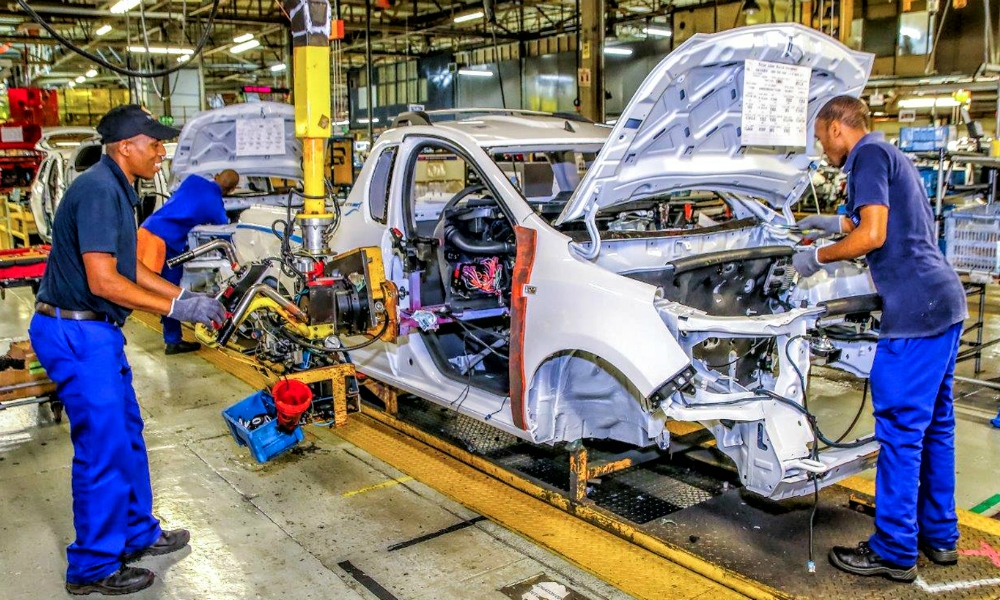Executive Summary
Manufacturing refers to the fabrication or assembly of components into finished products on a fairly large scale, relative to any industry that makes products from raw materials by the use of manual labor or machinery that is usually carried out systematically with a division of labor.
ESG and sustainability initiatives have reached a tipping point for companies. The fast rise of environmental, social, and governance (ESG) impact awareness is redefining and elevating sustainability in lead sectors such as manufacturing. Manufacturers must be aware that ESG is about meeting the needs of the present without compromising the needs of the future; therefore, ESG considerations should be included when the company is making business decisions.
Further into this newsletter are highlights of ESG as it relates to manufacturing, the key relevance of ESG to manufacturers and the risks inherent in manufacturing operations, emerging practices in the manufacturing industry, and recommendations.
Among Nigeria’s most important manufacturing industries are those that produce automobiles, chemicals, clothing, computers, consumer electronics, electrical equipment, furniture, machinery, refined petroleum products, steel, processed food & beverages, textiles, and pharmaceuticals.
What is ESG in Manufacturing?

Environmental, Social, and Governance (ESG) in manufacturing refers to standards that help the company to do better and be more accountable for its environmental impact, social responsibility, and organizational governance.
- Environmental: refers to the production of goods, energy, resources, and material use. This includes carbon/greenhouse gas (GHG) accounting, energy assessments, water usage, environmental certifications, energy transitions, and environmental impact analysis.
- Social: refers to talent benefit and retention, employee and community engagement, health and safety, human rights, diversity and inclusion, supply chain advisory, due diligence, and conflict in raw materials assessments.
- Governance: involves the company’s non-financial reporting, assurance of those reports, responsible tax, board composition, remuneration and executive compensation, shareholder rights, corporate investigations, ethics and compliance, supply chain management, product quality, cybersecurity, and data protection.

Relevance of ESG in Manufacturing
Manufacturers must adopt more sustainable and ethical business practices to remain profitable and relevant in today’s economy. Developing a strong ESG proposition can help companies attract and retain quality employees, enhance employee motivation by instilling a sense of purpose, and increase productivity overall. ESG programs will add value and contribute more to shareholder value in the medium to long term. Therefore, manufacturing companies must implement effective ESG strategies and ESG programs within their business operations and activities.
Manufacturers have a responsibility to act toward positive ESG impacts and build more sustainable manufacturing practices combating all other issues – because the future of our planet depends on it.
ESG Risks in Manufacturing
The most common hurdles Nigerian manufacturers face are energy sources, water scarcity, severe weather conditions causing service disruptions, resource inefficiency, waste management, etc.
However, some significant impacts or risks in manufacturing activities are stated below:
- Non-compliance with ESG Permits and National Regulations: The recommended permits/licenses for manufacturing are the National Agency for Food and Drug Administration Control (NAFDAC) permit, National Environmental Standards and Regulations Enforcement Agency (NESREA) certificate, Nigerian Export Promotion Council (NEPC) license, Standard Organization of Nigeria (SON) permit, Manufacturers Association of Nigeria (MAN) certificate, Fire Safety certificate.
- Depletion of Natural Resources: such as the use of plants and trees, bush burning, deforestation, sourced water from rivers, soil extraction, rocks, etc.
- Air/ Water/ Soil pollution: caused by industrial manufacturing activities, including Health and Safety issues and transboundary grievances resulting from air, land, and water Good manufacturing practices will mitigate and manage pollution impact.
- Workers’ Occupational Health & Safety (OH&S): Workers’ health and safety may be affected. Adequate measures and consistent training of workers on health and safety practices are recommended.
- Human Rights: Human rights concerns in the manufacturing industry manifest in poor working conditions marked by insufficient wages, prolonged work hours, and a failure to adhere to labor regulations. Discrimination, forced labor, and child labor issues further compound these challenges. Organizations must proactively establish and enforce a human rights policy or a stringent framework to govern their operational activities.
- Supply Chain and Ethical Sourcing of Raw Materials: Manufacturers face the demanding task of upholding ethical standards at every stage, from the extraction or cultivation of raw materials to their processing, transformation into finished products, and delivery to markets. This challenge is amplified when supply chains extend across diverse regions. Ensuring sustainable practices requires effectively managing growing demand while upholding ethical standards, regulations, and policies.
- Climate Change: The various stages of production result in high carbon emissions or the release of greenhouse gases into the atmosphere, impacting the climate in the long term. This can be mitigated by using alternative eco-friendly energy/ renewable energy sources to power operations.
Emerging Practice for Manufacturers
- Workforce Shortage: As flexible work is taking root in offices, manufacturers should explore ways to add flexibility across their organization to attract and retain workers. Also, pair strategies such as reskilling with a recasting of their employment brand. Organizations that can act through workforce shortages and the rapid pace of change today can come out ahead.
- Supply Chain Instability: Manufacturers are remaking supply chains, and as demand overtakes supply, higher costs are more likely to be passed on to customers. Supply chain strategies are expected to be multipronged. Digital supply networks and data analytics can be powerful enablers for more flexible, multitiered responses to disruptions.
- Cybersecurity: Rising threats are leading the industry to new levels of preparedness. Manufacturers should look not only at cyber defenses but also at the resiliency of their business in the event of a cyberattack. Cybercriminals can cause harm beyond intellectual property theft and financial losses, using malware that now ties in AI and cryptocurrencies. They can also shut down operations and disrupt entire supplier networks, compromising safety and productivity. The potential for additional oversight is likely to prompt more industries to rethink preparedness for crisis response.
- ESG Investments: Manufacturers are likely to bring more resources and consistency to advancing sustainability. To develop and deliver against net-zero or carbon-neutral goals, more companies are redesigning sustainability roles and initiatives and quantifying efforts and results around energy consumption. And the fast-evolving ESG landscape may require close monitoring for manufacturers in recent times. Many organizations comply voluntarily within a complex network of reporting regulations, ratings, and disclosure frameworks. Proactive approaches may help manufacturers stay ahead of the change and create a competitive advantage for business investments.
Recommendations:
Manufacturing is integral to our economy today, and as more goods are being manufactured daily, so are the concerns about their harmful effects. To limit these risks, banks are to ensure that manufacturing businesses are responsible for complying with national environmental policies directed at contributing to sustainable economic development and public health by maintaining and improving the quality of the environment. While most companies may not be aware of such policies and will not intentionally violate environmental law(s), manufacturers must stay updated on applicable regulations and emerging trends to ensure compliance at a minimum.
One of the many benefits of connecting ESG corporate goals, which are typically set at the executive level, with jobs completed across the manufacturing facility is that it can help the company achieve its sustainability goals, without compromising profitability or productivity.
Conclusion
The significance of ESG in the manufacturing sector can’t be considered without the right tools, measures, and technology to help the company achieve its ESG goals.
Nigerian manufacturers should transition to more renewable energy sources. Manufacturers who haven’t started implementing ESG initiatives or begun thinking about it are lagging behind and should key into the emerging best practices for the industry.
Manufacturing companies that adapt and build resilience in light of changing ESG impact will be better positioned and come out sustainably ahead in the long run.
References:
















